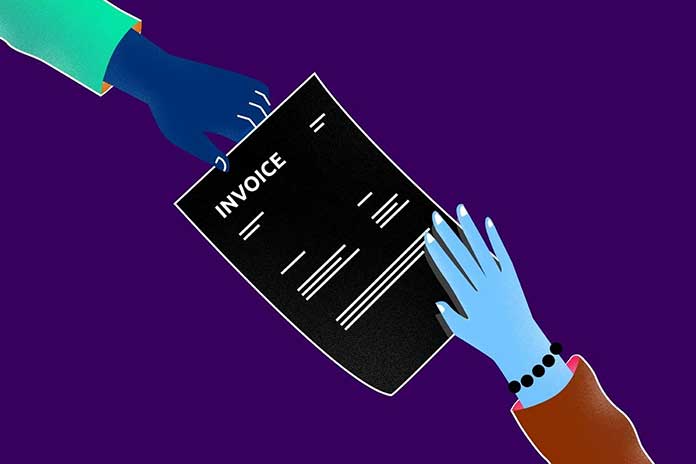An essential document in business, the invoice allows you to pay. It is also proof of the service or sale that has been made. Very important, it must be established in due form and must meet specific rules to be valid. So, what is an invoice? What is its role, and what legal notices should it include? Focus on this essential accounting element in business.
Table of Contents
Definition of an invoice
The invoice is an accounting document that proves a purchase or a sale. It lists the goods and services provided by your business, and at the same time, indicates their price, as well as the total amount payable by the buyer.
The invoice is therefore essential since it is the document that identifies the creditor (yourself) and the debtor (your customer) and serves as a request for payment. But to be valid, it must meet certain conditions.
According to the legislation in force, the invoice is obligatory. Note that the buyer has the right to claim a claim if it has not been sent to him.
What is his role?
The invoice is an essential document that will allow:
- The follow-up of the various commercial transactions, essential for your accounting, your tax return, but also to know your financial situation with precision;
- To prove what you have won;
- To justify the agreement concluded with the customer. You will need to present it clearly to avoid misunderstandings;
- To request payment from your buyer. You will then receive the money owed for your work;
- To implement actions in the event of unpaid debts ;
- To promote your activity and develop the image of your company through a logo or links to social media.
Also Read: Deep Learning: Concept, Definition & Examples
How long do you have to keep an invoice?
It all depends on the country in which you reside. Indeed, the VAT directive allows the countries of the European Union to impose their storage periods. Thus France will not have the exact requirements as Spain in terms of the shelf life of an invoice.
What are the different types of invoices?
There are several types of invoices :
- The standard invoice: this is the most common document. It can be used for several sectors of activity and consists of a fundamental format containing all the necessary information.
- The commercial invoice is used in international trade to ship goods from one country to another.
- The pro forma invoice, estimate, or estimate gives the buyer an estimate of the price of the products or services.
- The closing invoice : which closes a contract between a service provider and a customer.
- The bill to have: it allows to cancel or modify an established invoice.
- The down payment invoice allows justifying the amount paid upstream of the delivery or realizing a good or service.
- The situation invoice, also called progress invoice or intermediate invoice, allows spreading the payment of a site or a project and invoice.
- The regularization invoice is carried out following the reading of an index of a meter.
What elements must appear on the invoice?
To be compliant, an invoice must contain various legal notices. It is made up of 3 main parts:
The header
The header, which contains several mandatory information, such as:
- The word “invoice,” which must appear at the top of the document;
- The date of issue (date of sale);
- The number which must respect a logical numbering;
- The address of both parties;
- The VAT number or company identification number, SIREN number, or even RCS number.
Goods or services
The lines of the invoice must indicate the various goods or services provided as well as their price. They must also describe the different components of a project or product and their unit price.
In-service provision, the lines must also indicate the hourly rate and the time devoted to each part of the project. Do not also forget to tell the date of delivery or end of the service.
Also Read: Definition Of Gadget
Tips for writing an invoice
First of all, be as clear and complete as possible in describing your services and products. The customer wants to know precisely what he is buying! A beautiful presentation also makes all the difference and directly reflects your professionalism.
On the other hand, be aware that using invoicing software will save you time and avoid oversights. This efficient tool not only guarantees compliant invoices but also considerably facilitates administrative management. In addition, your documents are searchable from anywhere, and follow-up and reminders are greatly simplified.
If you don’t have any software available yet, you could very well use Word or Excel. You have to be vigilant about the many legal notices to remember.


